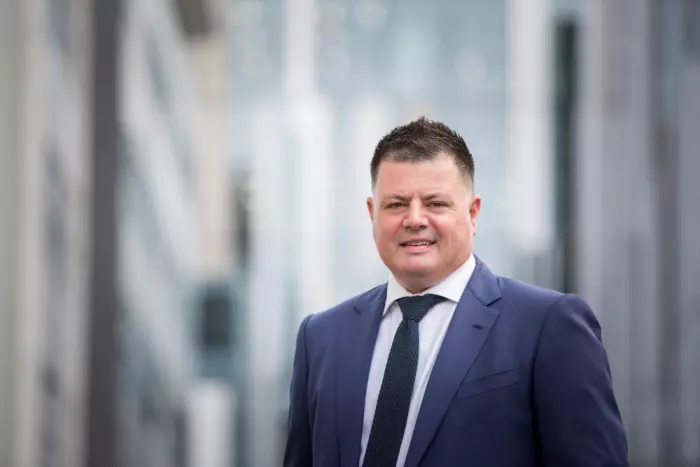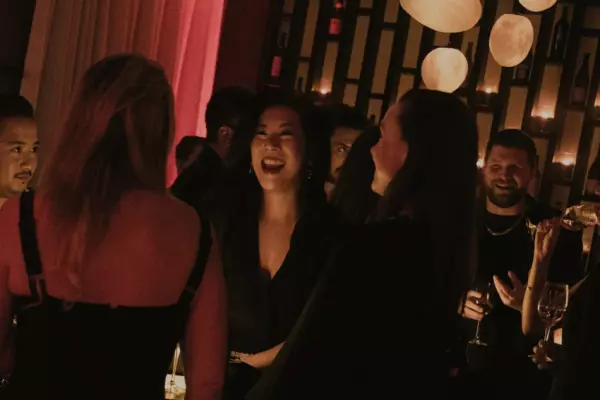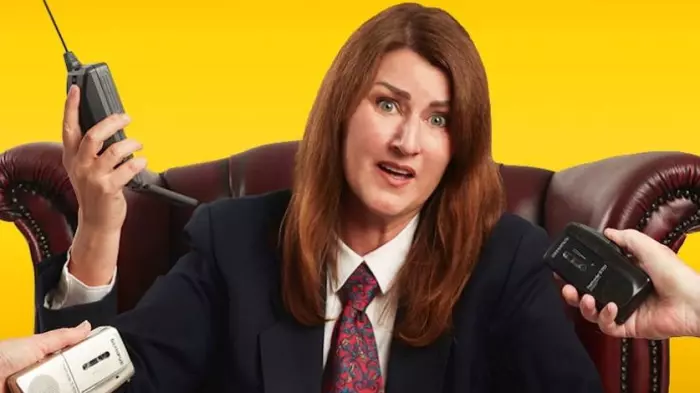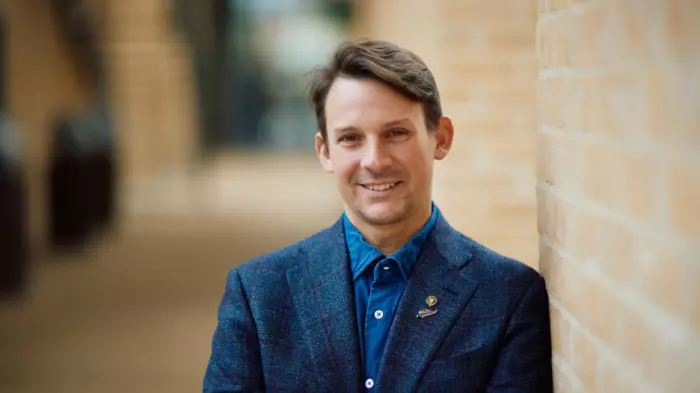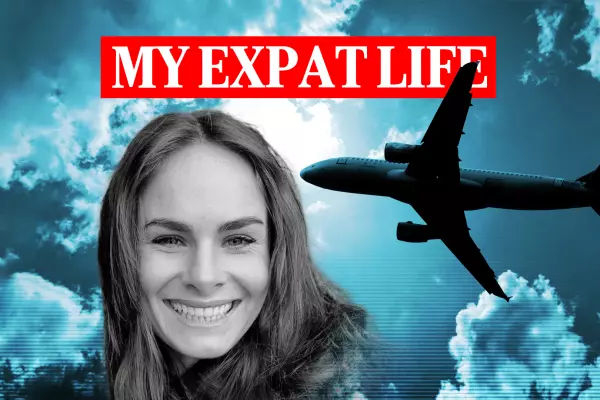Welcome to My Net Worth, our regular column on the lives and motivations of our country’s top business, legal and political people, in their own words.
Steve Jurkovich experienced two very different sides of New Zealand growing up, splitting his time between Auckland’s North Shore – where he attended Glenfield College – and the farming stronghold of Paeroa. He learned the value of hard work from his family, including his Croatian paternal grandparents. After holding management roles at Westpac and ASB Bank, he became chief executive of Kiwibank in July 2018. His executive education includes the Graduate School of Business at Stanford University in California, and studies at the London Business School and the University of Sydney for an executive master of business administration degree. He also has a law degree from Otago University.
I’m an only child, and my parents separated when I was fairly young. I split my time between the North Shore of Auckland and Paeroa in the Thames Valley. I’d spend every second weekend in Paeroa, where my father and grandparents lived on a dairy farm in a small place called Netherton. So I’d travel around quite a bit.
I had my foot in two camps, one in urban Auckland and one in the regional dairy-farming part of the country. The contrast between those two lives was helpful for me later in life, as I’d learned early that New Zealand is an interesting mix of the urban and provincial.
As an only child, I spent a lot of time on my own, and as a result, I threw myself into playing every sport I could, albeit with a modest ability. Rugby, football, cricket, basketball. Now that I’m older, I recognise the hard work parents put in to get their kids to all of these things. It’s a rare gift to have someone who gives you that support, and it makes a big difference.
My mum was always extremely hard-working and worked a variety of jobs over the years. Her work ethic was an inspiration. She always taught me to put my head down and to be entrepreneurial. She built small boats and dinghies and sold them. She was always passionate about the water.
My dad, after he left dairy farming, worked for an engineering company in Hamilton. As I reflect on it now, he was always up at 4.45 in the morning. He wouldn’t get back from Hamilton until 6pm – a round trip of 150km a day. You don’t recognise that kind of stuff at the time.
My grandparents came from Yugoslavia, the part now known as Croatia. My grandfather left there with his brother, but they were put on separate boats. They both thought they were going to Canada, but my grandfather ended up in New Zealand. Like a lot of immigrants, my grandparents worked hard. They literally dug out a dairy farm from a swamp in the Thames Valley.
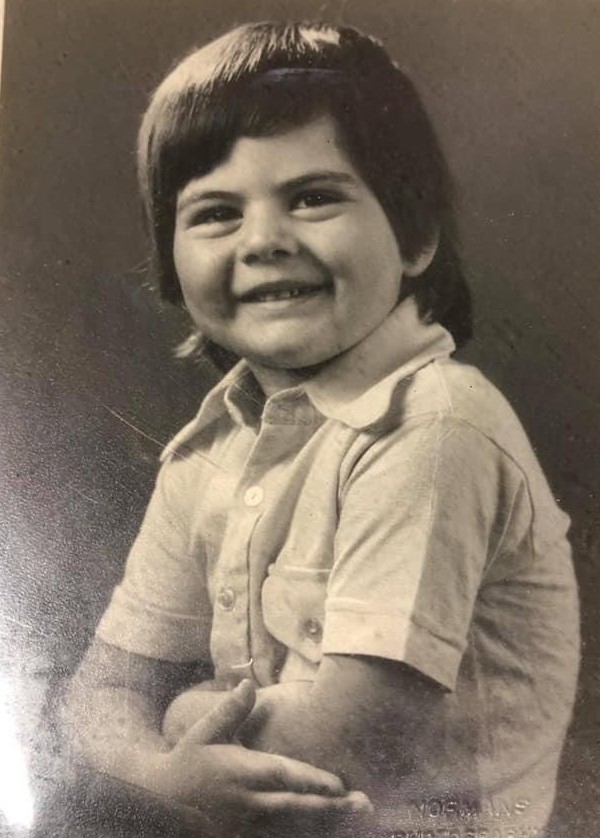 Steve Jurkovich aged four.
Steve Jurkovich aged four.
I was pretty vague about what I wanted to do for a living until I was in my last school year. I decided I wanted to become a physical education teacher. I applied for teachers’ college, got accepted, but lasted only three months. I was probably the worst student ever. I just felt out of my comfort zone. I realised that I didn’t want to stand in a field with a whistle around my neck for the rest of my career.
I worked for a bank for nine months or so and then trundled off to university in Otago. That was the big tipping point for me. I got to law school and began to gravitate towards commercial law and finance pretty early on. After university, with average grades, I eventually got my first job at a law firm in Auckland, Shieff Angland, where I was very oriented towards banking and property clients.
Getting the chief executive role at Kiwibank is the biggest achievement in my career to date. To celebrate, we just had a quiet dinner at home with the family. In your career, you rely heavily on a tight circle of people to get you there. My wife, Janine, made a lot of sacrifices, as I’ve had to spend a lot of time away from the kids at times.
My biggest regrets in business are the moments I’ve let myself down in terms of leadership and my interaction with my teams. Once, a team member told me she felt a bit wobbly and that the wheels might come off. The next day, I discovered she’d had a breakdown. That stuck with me. I wish I’d asked her, “What do you mean by that?” You look back on those moments and think you could have done better.
There have been several influences on my career: Sir Ralph Norris, the former chief executive at ASB, who was so clear about what the business was trying to achieve; Barbara Chapman, ASB marketing manager and later CEO, for her sixth sense around energy and empathy; Hugh Burrett, my first leader at ASB; and Linley Wood, who was in the ASB leadership team for 25 years and is now an independent director on the board of the BNZ.
I’ve never been someone who needs to switch off and separate strict work-life boundaries. But I try to manage my energy, especially during times when things are not going well, when I’ve been too full-on and haven’t given the family my full attention.
My eldest daughter has kicked off a personal training business, so I train with her three times a week in the morning with a friend. We get a good beating.
I love my golf, too, but I have moderate ability. I play up at Omaha and love the links course. I have lots of friends up there and try to get there when I can.
The last book I read was No Rules Rules, the story of Netflix, written by founder Reed Hastings. Before that, I read A Promised Land, by Barack Obama. I tend to stick to non-fiction, but I sometimes try to escape into a bit of fiction when I go on holiday.
The most valuable thing I own is my Auckland house. The last thing I splurged on was two new golf clubs to stop me chunking my chip shots. In a never-ending desire to stop that, I bought a lob wedge and sand wedge. I convinced myself that was the solution. Thankfully, things are going much better.
As told to Daniel Dunkley
This interview has been edited for clarity.


